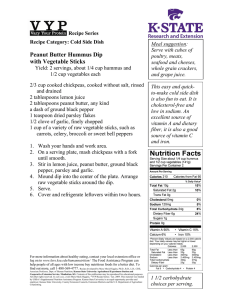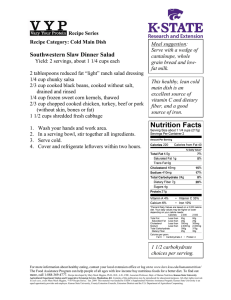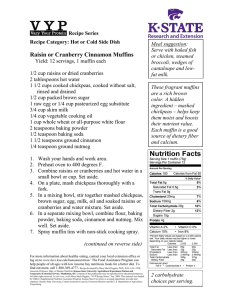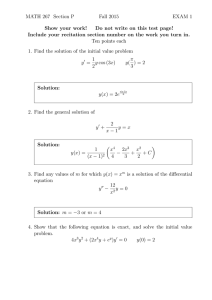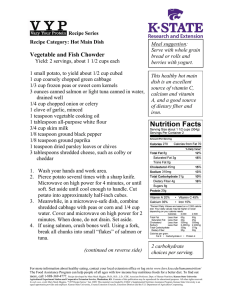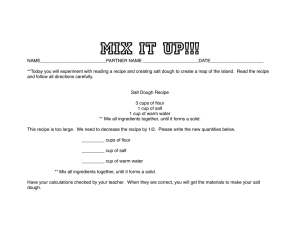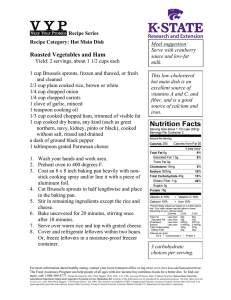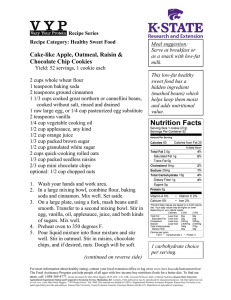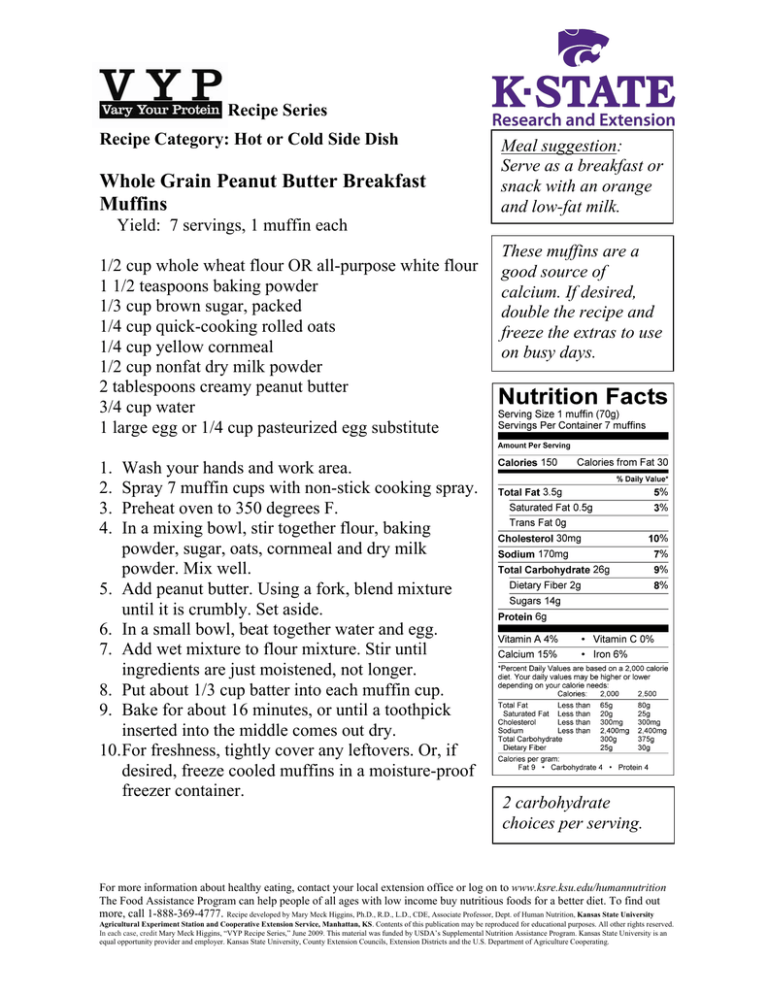
Recipe Series
Recipe Category: Hot or Cold Side Dish
Whole Grain Peanut Butter Breakfast
Muffins
Meal suggestion:
Serve as a breakfast or
snack with an orange
and low-fat milk.
Yield: 7 servings, 1 muffin each
1/2 cup whole wheat flour OR all-purpose white flour
1 1/2 teaspoons baking powder
1/3 cup brown sugar, packed
1/4 cup quick-cooking rolled oats
1/4 cup yellow cornmeal
1/2 cup nonfat dry milk powder
2 tablespoons creamy peanut butter
3/4 cup water
1 large egg or 1/4 cup pasteurized egg substitute
Wash your hands and work area.
Spray 7 muffin cups with non-stick cooking spray.
Preheat oven to 350 degrees F.
In a mixing bowl, stir together flour, baking
powder, sugar, oats, cornmeal and dry milk
powder. Mix well.
5. Add peanut butter. Using a fork, blend mixture
until it is crumbly. Set aside.
6. In a small bowl, beat together water and egg.
7. Add wet mixture to flour mixture. Stir until
ingredients are just moistened, not longer.
8. Put about 1/3 cup batter into each muffin cup.
9. Bake for about 16 minutes, or until a toothpick
inserted into the middle comes out dry.
10. For freshness, tightly cover any leftovers. Or, if
desired, freeze cooled muffins in a moisture-proof
freezer container.
These muffins are a
good source of
calcium. If desired,
double the recipe and
freeze the extras to use
on busy days.
1.
2.
3.
4.
2 carbohydrate
choices per serving.
For more information about healthy eating, contact your local extension office or log on to www.ksre.ksu.edu/humannutrition
The Food Assistance Program can help people of all ages with low income buy nutritious foods for a better diet. To find out
more, call 1-888-369-4777. Recipe developed by Mary Meck Higgins, Ph.D., R.D., L.D., CDE, Associate Professor, Dept. of Human Nutrition, Kansas State University
Agricultural Experiment Station and Cooperative Extension Service, Manhattan, KS. Contents of this publication may be reproduced for educational purposes. All other rights reserved.
In each case, credit Mary Meck Higgins, “VYP Recipe Series,” June 2009. This material was funded by USDA’s Supplemental Nutrition Assistance Program. Kansas State University is an
equal opportunity provider and employer. Kansas State University, County Extension Councils, Extension Districts and the U.S. Department of Agriculture Cooperating.

